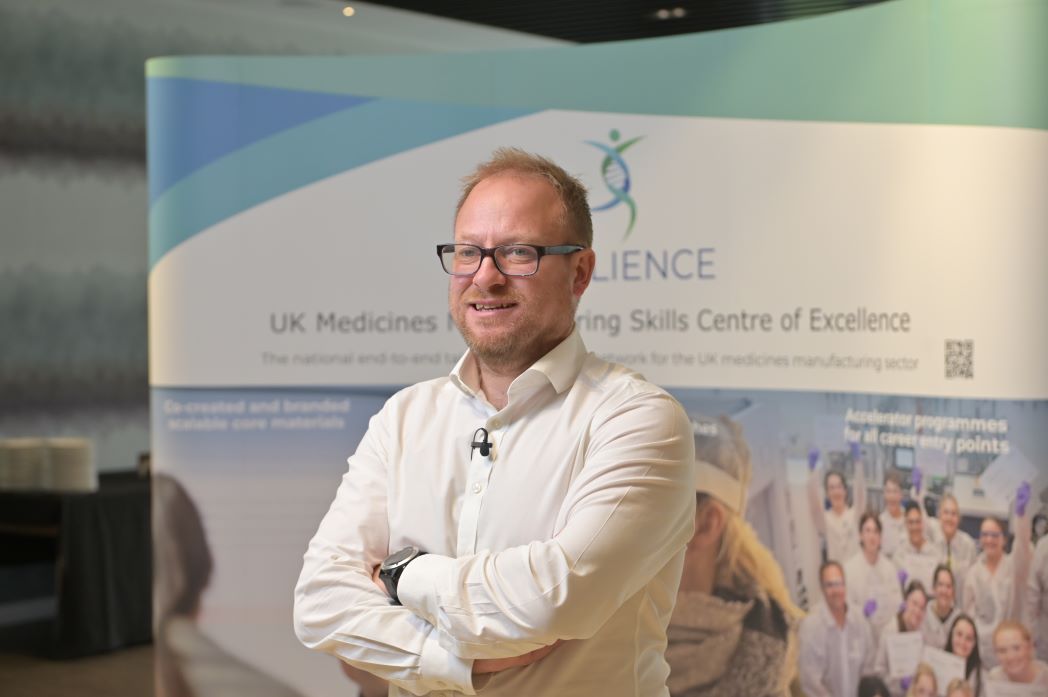A new initiative, known as Resilience, has been launched to address the acute skills shortage faced by the medicines manufacturing industry in the UK.
Funded by the Office for Life Sciences, part of the UK Government’s Department for Science, Innovation & Technology, and managed through Innovate UK, Resilience is a £4.5 million, two-year programme.
At the recent launch event at the University of Birmingham, the Minister of State for Science, Research and Innovation, Lord Patrick Vallance, said: “With over £108 billion turnover, as a provider of over 300,000 jobs nationwide, and as a source of treatments helping tackle some of the most debilitating diseases, the life sciences sector is one of the UK’s true industrial champions.
“Our medicines manufacturers’ work is critical to the economic success, and health, of the nation. For them to keep being successful, it is imperative that we help them bridge the industry’s skills gaps. This new Centre of Excellence will be an important part of those efforts – bringing industry, universities and the NHS together with schools and colleges to ignite the next generation of life sciences talent.”
Resilience will create and deliver new training courses for industry, the NHS and education providers, addressing key sector priorities, including digital technology, artificial intelligence, data analysis and environmental sustainability.
Partner organisations across the UK delivering the programme include the University of Birmingham, University College London (UCL), Teesside University, Heriot-Watt University and Britest Ltd, all of whom have a strong track record of delivering training for industry and supplying new talent for the medicines manufacturing sector.
The Life Sciences plan, A Prescription for Growth, outlines the government’s ambition to create a robust talent pipeline that meets the needs of industry, academia, the NHS, and the wider supporting workforce, driving both innovation and growth. In line with this, the government is actively working to develop a talent pool that addresses the specific needs of UK companies and investing to support bespoke skills needs, like Resilience.
The recently published Life sciences competitiveness indicators 2024 noted that pharmaceutical manufacturing’s gross value added (GVA) was £13.7 billion in 2021.
The Resilience partner organisations will deliver in-person and remote training courses in advanced laboratory and medicines manufacturing skills to schools, higher and further education colleges, universities and the NHS.
Resilience is taking an approach built around:
- Individual speciality training for industry and NHS through short courses
- Co-development of standardised core materials for schools, colleges and universities
- Digitalisation of training, and digital literacy training to meet emerging industry needs
- Scalable, UK-wide delivery through strategic partnerships and affiliate memberships
- Adopting environmentally sustainable training strategies (e.g. VR/AR) that contribute to net zero goals
- Working with companies, government, educators, and international parties to identify needs, opportunities, collaborations and partnerships
- Embedding ED&I in its outreach, training, coaching and partner engagement, to create a workforce that is diverse, inclusive, agile, adaptable and innovative
Professor Ivan Wall, co-director of Resilience, added: “The use of VR technology will be central to the project, helping young people safely learn skills that it would be impractical to gain in the real world due to logistics and capacity.
“It will also help the NHS to meet its long-term goal of achieving net zero. 25% of their emissions are in the supply chain, and VR will help the industry deliver net zero medicines manufacturing.”
The Resilience STEM Outreach programme will produce curriculum-aligned materials and careers awareness events. It aims to partner with 20 schools or colleges, providing them with an annual free loan of VR headsets. The programme also aims to engage with 150 schools, colleges, and FE centres across the UK. It will include laboratory placements and participation in STEM Festivals.
The Medicines Manufacturing Industry Partnership (MMIP), which represents medicines manufacturers in the UK, noted in 2023 that medicines manufacturing generates the majority of life sciences jobs.
It is a competitive international sector and other countries such as Ireland, Singapore, France and the US already have well-funded government support in place.
Professor Wall concluded: “It is a highly competitive sector, but we are hugely ambitious for Resilience. We have the talent, but it needs to be encouraged into the sector, so our plans for using cutting-edge technology like VR will help make it an attractive career path and create a highly-skilled workforce.”


